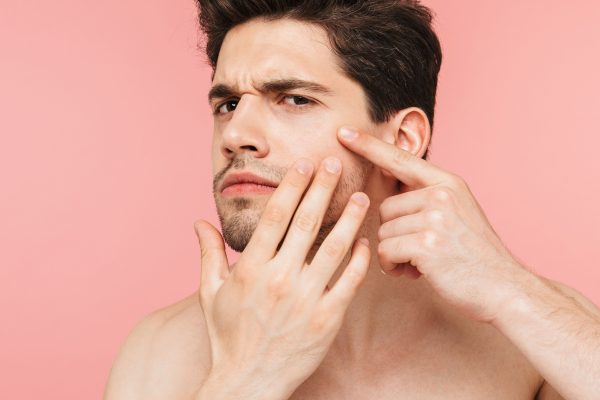In the realm of men’s health, few topics spark as much debate and confusion as the relationship between testosterone and prostate health. Myths abound, often clouding the true understanding of the risks and benefits associated with testosterone levels and prostate conditions. In this comprehensive article, we aim to dispel these myths, provide accurate information, and elucidate the intricate dynamics between testosterone and prostate health.
- Understanding Testosterone: The Vital Hormone
- Common Myths About Testosterone and Prostate Health
- The Role of Testosterone in Prostate Health
- Risks and Benefits of Testosterone Therapy
- Monitoring and Managing Prostate Health During TRT
- Conclusion: Striking the Right Balance
- FAQs: Testosterone and Prostate Health
- Question: Does testosterone therapy cause prostate cancer?
- Question: Do high testosterone levels lead to an enlarged prostate?
- Question: What are the benefits of testosterone replacement therapy (TRT)?
- Question: What are the potential risks of testosterone replacement therapy (TRT)?
- Question: How should prostate health be monitored during testosterone replacement therapy?
- Question: Can lifestyle choices impact prostate health?
- Question: Is communication with healthcare providers important during TRT?
Understanding Testosterone: The Vital Hormone
Testosterone is a critical hormone predominantly produced in the testes, playing a vital role in male development and health. It influences various bodily functions, including muscle mass, bone density, red blood cell production, and sexual function. As men age, testosterone levels naturally decline, leading to a condition known as hypogonadism or low testosterone.
Common Myths About Testosterone and Prostate Health
Myth 1: Testosterone Therapy Causes Prostate Cancer
One of the most pervasive myths is that testosterone therapy increases the risk of prostate cancer. This belief is rooted in the early 1940s when researchers observed that prostate cancer patients experienced a halt in cancer progression after undergoing castration, which significantly reduces testosterone levels. However, recent studies have debunked this myth. Current research indicates that there is no direct link between testosterone therapy and an increased risk of prostate cancer. In fact, some studies suggest that optimal testosterone levels may have a protective effect against prostate cancer.
Myth 2: High Testosterone Levels Lead to Enlarged Prostate
Another common misconception is that high testosterone levels cause benign prostatic hyperplasia (BPH), an enlarged prostate condition. While BPH is prevalent in older men, its primary cause is aging rather than testosterone levels. Research has shown that men with higher testosterone levels are not necessarily more likely to develop BPH. Instead, factors such as genetics, age, and lifestyle play more significant roles in the development of this condition.
The Role of Testosterone in Prostate Health
Balancing Act: Testosterone and Prostate Growth
The prostate gland is androgen-dependent, meaning it requires androgens like testosterone to function and grow. However, this does not imply that high testosterone levels cause prostate disorders. The relationship between testosterone and prostate growth is more nuanced. Testosterone is converted to dihydrotestosterone (DHT) within the prostate, a more potent androgen responsible for prostate growth. The key lies in the balance of testosterone and its conversion to DHT, rather than the absolute levels of testosterone.
Testosterone Replacement Therapy (TRT) and Prostate Health
For men with clinically low testosterone levels, testosterone replacement therapy (TRT) can significantly improve quality of life, enhancing energy levels, mood, and sexual function. Concerns about TRT exacerbating prostate issues have been largely unfounded. Recent meta-analyses and long-term studies have shown that TRT does not increase the incidence of prostate cancer or BPH. However, regular monitoring by healthcare professionals is essential to ensure safety and address any potential issues early.
Risks and Benefits of Testosterone Therapy
Potential Benefits
- Improved Sexual Function: TRT can restore libido and erectile function in men with low testosterone.
- Increased Muscle Mass and Strength: Testosterone promotes muscle protein synthesis, aiding in muscle growth and maintenance.
- Enhanced Mood and Cognitive Function: TRT has been linked to improved mood, reduced depression, and better cognitive performance.
- Bone Health: Testosterone plays a crucial role in maintaining bone density, reducing the risk of osteoporosis.
Potential Risks
- Polycythemia: TRT can increase red blood cell count, potentially leading to blood clots.
- Sleep Apnea: Some men may experience worsening sleep apnea with TRT.
- Cardiovascular Issues: The relationship between TRT and cardiovascular health is complex, requiring individual risk assessment.
Monitoring and Managing Prostate Health During TRT
Regular Screening
Men undergoing TRT should have regular prostate-specific antigen (PSA) tests and digital rectal exams (DRE) to monitor prostate health. Elevated PSA levels can indicate prostate issues, including cancer, but can also result from non-cancerous conditions like BPH or prostatitis.
Lifestyle Factors
Adopting a healthy lifestyle can significantly impact prostate health. Diets rich in fruits, vegetables, and healthy fats, regular exercise, and avoiding smoking and excessive alcohol consumption contribute to overall prostate well-being.
Communication with Healthcare Providers
Open communication with healthcare providers is crucial for men on TRT. Any changes in urinary function, sexual health, or overall well-being should be promptly discussed to ensure appropriate adjustments to therapy or further investigations if needed.
Conclusion: Striking the Right Balance
Understanding the complex relationship between testosterone and prostate health is essential for making informed decisions about testosterone therapy. Dispelling myths and focusing on evidence-based information allows men to reap the benefits of optimal testosterone levels while minimizing potential risks. Regular monitoring, healthy lifestyle choices, and proactive healthcare provider engagement are key components of maintaining prostate health during TRT.
For those seeking to optimize their health and testosterone levels, it’s crucial to base decisions on scientific evidence and individual health needs rather than pervasive myths.
Studies and Sources
Understanding the relationship between testosterone and prostate health requires examining the latest research and evidence. Below are some key studies and sources that provide valuable insights into this complex topic.
- Testosterone Therapy and Prostate Cancer Risk: A study published in the Journal of the National Cancer Institute explored the potential link between testosterone therapy and prostate cancer risk. The findings suggest that while there may be concerns about testosterone therapy increasing the risk of prostate cancer, the evidence is not conclusive. More research is needed to fully understand this relationship. Read more (Oxford Academic).
- Testosterone Replacement Therapy (TRT) and Prostate Health: Research published in European Urology examined the safety of TRT in men with hypogonadism. The study concluded that TRT does not significantly increase the risk of prostate cancer, provided that patients are carefully monitored. Read more (Oxford Academic).
- NEJM Study on TRT Safety: A landmark study in the New England Journal of Medicine evaluated the safety of testosterone therapy. The study found that testosterone therapy, when appropriately managed, can be safe for men with low testosterone levels. However, it emphasizes the importance of individualized treatment plans. Read more (Oxford Academic).
- Impact of Testosterone on Prostate Specific Antigen (PSA) Levels: An article in the Journal of Clinical Endocrinology & Metabolism reviewed the effects of testosterone therapy on PSA levels. The study found that while testosterone therapy can increase PSA levels, it does not necessarily indicate prostate cancer. Regular monitoring is crucial. Read more (Oxford Academic).
- Guidelines from the American Urological Association: The American Urological Association provides comprehensive guidelines on the use of testosterone therapy in men. These guidelines emphasize the importance of screening and monitoring to mitigate potential risks. Read more (Oxford Academic).
- Diet and Lifestyle Tips for Prostate Health: Harvard Health offers valuable advice on maintaining prostate health through diet and lifestyle changes. These tips can complement medical treatments and help reduce the risk of prostate issues. Read more (Oxford Academic).
- Endocrine Society Guidelines on Testosterone Therapy: The Endocrine Society provides detailed guidelines on testosterone therapy, highlighting the importance of careful patient selection and monitoring to ensure safety and efficacy. For more details, you can refer to the Endocrine Society’s updated guideline on testosterone therapy (Endocrine News) (Endocrine News).
By reviewing these studies and sources, we can gain a deeper understanding of the risks and benefits of testosterone therapy, particularly in relation to prostate health.
FAQs: Testosterone and Prostate Health
Question: Does testosterone therapy cause prostate cancer?
No, recent studies have shown that there is no direct link between testosterone therapy and an increased risk of prostate cancer. In fact, some research suggests that optimal testosterone levels may have a protective effect against prostate cancer.
Question: Do high testosterone levels lead to an enlarged prostate?
No, high testosterone levels do not necessarily cause benign prostatic hyperplasia (BPH). The primary causes of BPH are aging and genetics, not testosterone levels.
Question: What are the benefits of testosterone replacement therapy (TRT)?
Testosterone replacement therapy (TRT) can improve sexual function, increase muscle mass and strength, enhance mood and cognitive function, and help maintain bone density, reducing the risk of osteoporosis.
Question: What are the potential risks of testosterone replacement therapy (TRT)?
Potential risks of TRT include polycythemia (increased red blood cell count), worsening sleep apnea, and complex cardiovascular issues that require individual risk assessment.
Question: How should prostate health be monitored during testosterone replacement therapy?
Men on TRT should have regular prostate-specific antigen (PSA) tests and digital rectal exams (DRE) to monitor prostate health. Elevated PSA levels can indicate prostate issues, which may require further investigation.
Question: Can lifestyle choices impact prostate health?
Yes, adopting a healthy lifestyle can significantly impact prostate health. Diets rich in fruits, vegetables, and healthy fats, regular exercise, and avoiding smoking and excessive alcohol consumption contribute to overall prostate well-being.
Question: Is communication with healthcare providers important during TRT?
Yes, open communication with healthcare providers is crucial for men on TRT. Any changes in urinary function, sexual health, or overall well-being should be promptly discussed to ensure appropriate adjustments to therapy or further investigations if needed.
Testosterone and Bone Density: Unlocking the Key to Male Bone Strength
Unleash the Power of Testosterone to Build Muscle Fast and Achieve Your Goals





